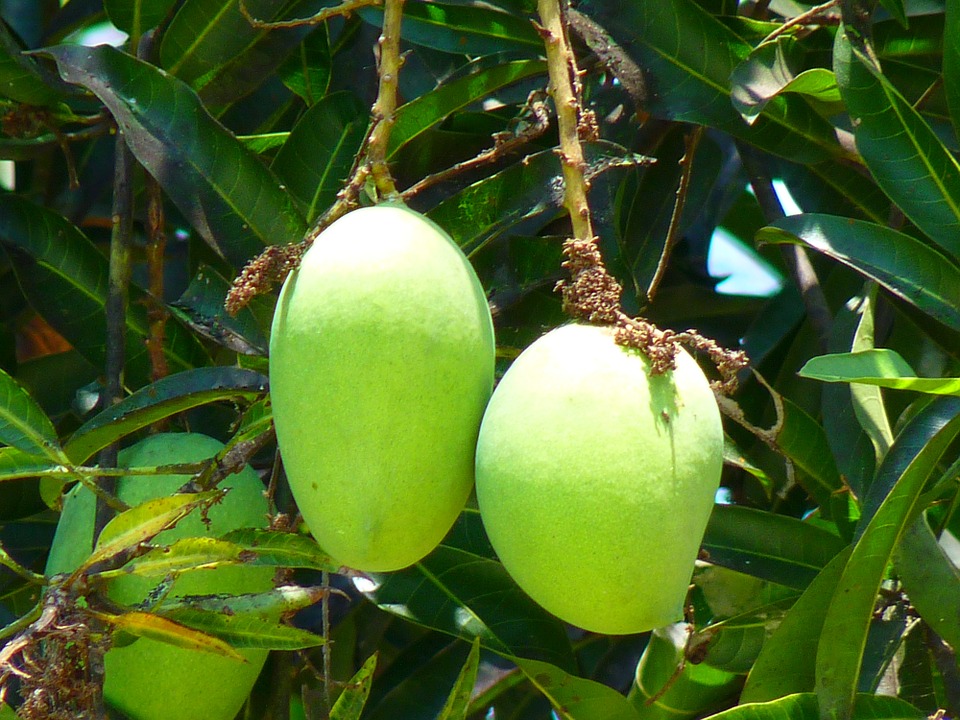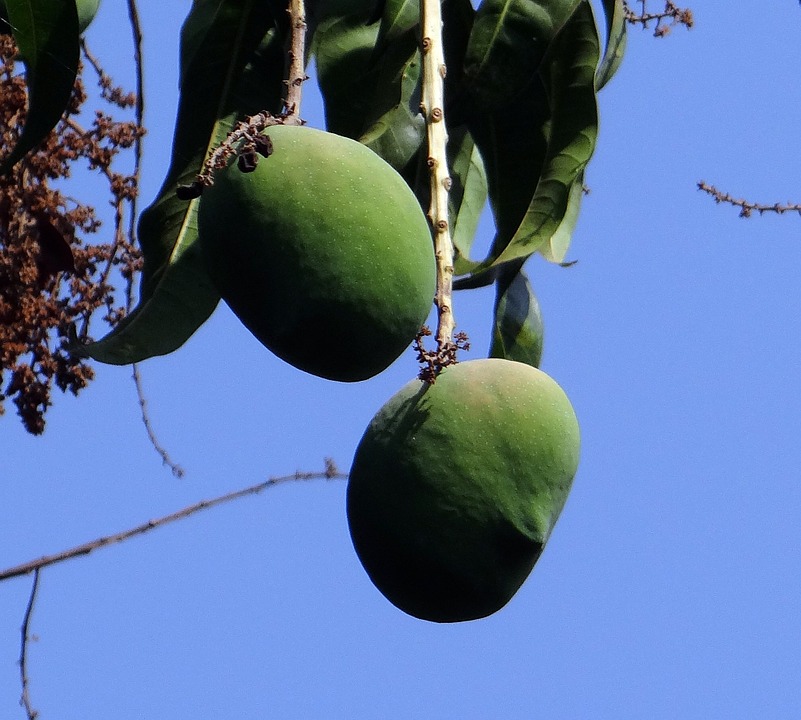Mangoes, the vibrant and juicy tropical fruit, are a beloved treat for humans worldwide. Their sweetness and rich aroma make them a tempting addition to various dishes and desserts. However, when it comes to our feline companions, the question of whether mangoes are safe for consumption arises. In this article, we delve into the world of mangoes and cats, exploring the potential benefits, risks, and everything in between. We'll cover the nutritional content of mangoes, their potential effects on cats, and provide guidance on safe consumption practices. By understanding the intricacies of this topic, we can ensure our furry friends enjoy a healthy and happy life.
Part 1: Understanding Mangoes and Their Nutritional Profile

1.1 Mango: A Tropical Delight
- Mangoes, scientifically known as Mangifera indica, belong to the cashew family (Anacardiaceae) and are native to South Asia, particularly India and Southeast Asia. They have been cultivated for centuries and are now grown in tropical and subtropical regions around the world.
- They are a versatile fruit, enjoyed in various forms, from fresh to dried and even pickled. Mangoes are often used in jams, chutneys, smoothies, and even ice cream. Their unique flavour profile and versatility have made them a staple in many cuisines.
- The vibrant yellow flesh of the mango is packed with flavour and a delightful aroma. It ranges from sweet and delicate to tart and tangy, depending on the variety. The texture can also vary, from soft and creamy to firm and fibrous.
1.2 Nutritional Value of Mangoes
- Mangoes are a rich source of vitamins, minerals, and antioxidants, offering numerous health benefits for humans. They are considered a superfood due to their impressive nutritional profile.
- They are particularly high in vitamin C, a powerful antioxidant known to boost immunity and protect against cell damage. Vitamin C also plays a vital role in collagen production, which is essential for healthy skin, bones, and tendons.
- Mangoes also contain vitamin A, crucial for eye health and vision. Vitamin A is essential for maintaining healthy vision, particularly in low-light conditions.
- They are a good source of dietary fibre, essential for digestive health and maintaining regular bowel movements. Dietary fibre helps to regulate bowel movements, promote a healthy gut microbiome, and aid in weight management.
- Mangoes provide potassium, which plays a vital role in regulating blood pressure and muscle function. Potassium is also essential for nerve function and helps to prevent muscle cramps.
- Additionally, mangoes are a good source of B vitamins, which are important for energy metabolism and cell growth. They also contain antioxidants like mangiferin, which may have anti-inflammatory and anti-cancer properties.
Part 2: Can Cats Eat Mango? Exploring the Safety Concerns

2.1 The Digestive Dilemma
- While mangoes offer nutritional benefits for humans, their high sugar content and fibrous nature can pose digestive challenges for cats.
- Cats are obligate carnivores, with digestive systems primarily designed to process meat-based diets. Their digestive tracts are not as equipped to handle large amounts of carbohydrates and fibre.
- The high sugar content in mangoes can lead to digestive upset, including diarrhoea, vomiting, and gas. The excess sugar can disrupt the balance of bacteria in the gut, leading to fermentation and discomfort.
- The fibrous nature of mangoes can be difficult for cats to digest, potentially causing intestinal blockages. The fibres can become entangled in the intestines, leading to obstruction and serious health complications.
2.2 Potential Toxic Components
- Mangoes contain a compound called mangiferin, which has been shown to have anti-inflammatory and antioxidant properties in humans. It is believed to have various health benefits, including reducing oxidative stress and boosting immunity.
- However, the potential effects of mangiferin on cats are not well-understood. While it is unlikely to be toxic, there is limited research on its effects on feline physiology.
- While no known toxic effects of mangiferin have been reported in cats, it's best to err on the side of caution and avoid feeding mangoes to them. Until more research is conducted, it is wise to consider the potential unknowns.
2.3 The Risk of Skin Irritation
- Some cats may experience skin irritation from contact with mango peels or sap. The peels and sap contain a substance called urushiol, which is a known allergen in humans and can cause allergic reactions.
- The risk of allergic reactions is generally low in cats, but it's advisable to avoid contact between cats and mango peels or sap. If your cat does come into contact with mango peels or sap, wash the affected area with soap and water to remove any residue.
2.4 The Potential for Gastrointestinal Upset
- The high sugar content and fibre in mangoes can cause gastrointestinal upset in cats, even in small amounts. This can manifest as diarrhoea, vomiting, gas, and abdominal pain.
- The high sugar content can disrupt the normal balance of bacteria in the gut, leading to fermentation and gas production.
- The fibre, while beneficial for humans, can be difficult for cats to digest and may cause blockages in the intestines, particularly if eaten in large quantities.
2.5 The Importance of Moderation
- Even if a cat does tolerate a small amount of mango without showing any adverse reactions, it's crucial to remember that moderation is key.
- Offering mango as a treat should be an occasional occurrence and never replace a balanced cat food diet.
Part 3: The Verdict: Are Mangoes Safe for Cats?

3.1 The General Consensus
- The general consensus among veterinary experts is that mangoes should not be fed to cats.
- The potential risks associated with mango consumption, such as digestive upset, potential toxicity, and skin irritation, outweigh any potential benefits.
- It's always best to err on the side of caution and avoid giving mangoes to cats.
3.2 Exceptions to the Rule
- In rare cases, a small amount of ripe mango flesh may be tolerated by some cats without adverse effects. However, this is highly individual-dependent and should be approached with caution.
- It's crucial to consult with a veterinarian before introducing any new foods to your cat, including mangoes. Your veterinarian can assess your cat's individual health status and dietary needs to determine if mango consumption is appropriate.
Part 4: Alternatives to Mango for Your Cat
4.1 Safe and Nutritious Treats
- Cats can enjoy a variety of safe and nutritious treats that are specially formulated for their dietary needs.
- Commercial cat treats are available in various flavours and textures, providing a healthy and enjoyable reward. These treats are typically designed to meet cats' nutritional requirements and are often low in sugar and fat.
- You can also offer your cat small amounts of cooked, lean meats, such as chicken, turkey, or fish. Ensure that any meat you offer is cooked thoroughly and free from bones and spices.
- Ensure that any treats you offer your cat are free from added sugars, artificial colours, and flavours. These ingredients can be detrimental to your cat's health and may lead to digestive issues or allergies.
4.2 Maintaining a Balanced Diet
- It's essential to provide your cat with a balanced diet that meets their specific nutritional requirements. A balanced diet ensures your cat receives all the necessary vitamins, minerals, and protein to thrive.
- Consult with your veterinarian to determine the best food choices for your cat's age, breed, and activity level. Your veterinarian can recommend a diet tailored to your cat's individual needs.
- High-quality cat food, whether dry, wet, or a combination, should form the foundation of your cat's diet. High-quality cat food provides the essential nutrients your cat needs to maintain good health.
- Avoid feeding your cat table scraps or human food, as these can be unhealthy and may lead to digestive issues. Human food often contains high levels of salt, sugar, and fat, which can be detrimental to your cat's health.
Part 5: The Importance of Consulting a Veterinarian
5.1 Expert Guidance for Your Feline Friend
- Your veterinarian is the best source of information regarding your cat's dietary needs and any potential risks associated with specific foods. Your veterinarian has the expertise to assess your cat's individual health status and advise you on the best dietary choices.
- They can provide personalized recommendations based on your cat's individual health status and any underlying conditions. If your cat has any pre-existing health conditions, such as diabetes or kidney disease, your veterinarian can advise on appropriate dietary modifications.
- Don't hesitate to contact your veterinarian if you have any questions or concerns about your cat's diet. Your veterinarian is your partner in ensuring your cat's health and well-being.
5.2 Safeguarding Your Cat's Health
- By consulting with a veterinarian, you can ensure that your cat receives the appropriate nutrition and avoids potential health risks. A veterinarian can help you identify and address any dietary issues before they become serious problems.
- They can help you develop a safe and balanced diet that meets your cat's needs and keeps them happy and healthy for years to come. A healthy diet is essential for maintaining your cat's overall well-being and preventing health problems.
Part 6: FAQs
6.1 What if my cat accidentally eats a small piece of mango?
- If your cat accidentally ingests a small piece of mango, monitor them closely for any signs of digestive upset, such as vomiting, diarrhoea, or lethargy. If you notice any changes in your cat's behaviour, contact your veterinarian.
- If you notice any adverse reactions, contact your veterinarian immediately. Early intervention is essential for managing any potential complications.
- In most cases, a small amount of mango is unlikely to cause serious harm, but it's always best to err on the side of caution and seek professional advice. It is better to be safe than sorry when it comes to your cat's health.
6.2 Can I give my cat mango juice?
- Mango juice is not recommended for cats due to its high sugar content. The high sugar content can lead to digestive issues and other health problems, such as weight gain and dental issues.
- Even small amounts of juice can lead to digestive issues and potential health problems. Cats don't need added sugar in their diet, and it can be harmful to their health.
- Stick to water or specially formulated cat drinks to keep your cat hydrated. Water is the best source of hydration for cats, and there are commercially available cat drinks that provide additional electrolytes and minerals.
6.3 Is it okay to give my cat a mango pit?
- Mango pits are extremely hard and can pose a choking hazard to cats. They are also difficult for cats to digest and can cause intestinal blockages.
- They should never be given to cats, as they can also cause intestinal blockages if ingested. If a cat swallows a mango pit, it can become lodged in the digestive tract, leading to serious complications.
- Keep mango pits out of reach of your cat and discard them properly. Properly disposing of mango pits will help to prevent your cat from accidentally ingesting them.
6.4 Can cats eat other fruits?
- Some fruits, such as bananas, blueberries, and strawberries, are generally considered safe for cats in moderation. However, it is important to note that even these fruits should be offered in small amounts and only occasionally.
- However, it's always best to consult with your veterinarian before offering any new fruits to your cat. Your veterinarian can advise you on appropriate fruit choices, safe serving sizes, and potential risks associated with specific fruits.
6.5 What are some signs that my cat is experiencing digestive upset?
- Signs of digestive upset in cats can include vomiting, diarrhoea, gas, lethargy, loss of appetite, and abdominal pain. If you notice any of these symptoms, it is important to contact your veterinarian.
- If you notice any of these symptoms after your cat has eaten mango or any other new food, contact your veterinarian immediately. Early intervention can help to prevent the condition from worsening.
6.6 Can cats be allergic to mangoes?
- While rare, cats can be allergic to mangoes, just like humans. Mango allergies in cats are not common, but it is important to be aware of the possibility.
- If your cat experiences any signs of an allergic reaction, such as skin rashes, itching, swelling, or difficulty breathing, seek immediate veterinary attention. An allergic reaction can be serious, and prompt medical attention is crucial.
Everyone is watching
-

Are Cat Ribs Flexible? Understanding Their Anatomy
CATS & KITTENSThis article delves into the fascinating world of feline anatomy, exploring the flexibility of cat ribs and ho...
-

Can Cats Eat Bananas? (Everything You Need to Know)
CATS & KITTENSThis article dives into the intriguing question of whether cats can safely enjoy the sweet, yellow fruit, bana...
-

Cat Lifespan: How Long Do Cats Live?
CATS & KITTENSThis comprehensive guide explores the factors influencing the lifespan of our feline companions, providing ins...
-

Can Cats Get COVID-19? What You Need to Know
CATS & KITTENSThis article will delve into the fascinating world of feline COVID-19 susceptibility. We'll explore whether ca...
-

Can Cats Eat Eggs? A Complete Guide to Egg Safety for Your Feline Friend
CATS & KITTENSWhen it comes to treating our furry companions, we all want to ensure we're doing what's best for them. Eggs...
